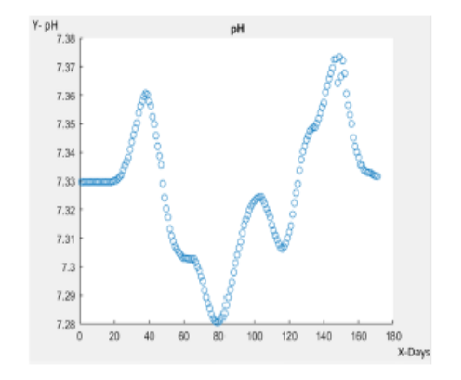


Indian Journal of Science and Technology
DOI: 10.17485/IJST/v16i22.2195
Year: 2023, Volume: 16, Issue: 22, Pages: 1624-1634
Original Article
Prashant Mathur1*, Sudhanshu Singh2
1Research Scholar, Amity University, Jaipur, Rajasthan, India
2Associate Professor, Chandigarh University, Gharuan, Mohali, India
*Corresponding Author
Email: [email protected]
Received Date:23 November 2022, Accepted Date:26 April 2023, Published Date:03 June 2023
Objectives: The primary aim of this study is to enhance the anaerobic digestion process’s efficacy by utilizing advanced optimization techniques, specifically genetic algorithms and fuzzy logic. The overarching objective is to employ these methods to optimize the model’s performance, resulting in improved anaerobic digestion outcomes. Methods: The Anaerobic Digestion process is a widely adopted technique for treating organic waste, which involves decomposing organic material by microorganisms without oxygen. However, the effectiveness of this process can be significantly influenced by various factors, such as pH, temperature, and nutrient levels. Given this process’s uncertain and imprecise nature, we propose the integration of fuzzy logic to simulate the associated uncertainties. Furthermore, we also employ genetic algorithm techniques to optimize the model’s parameters and improve its overall performance. The proposed methodology could enhance the efficiency and reliability of the Anaerobic Digestion process while minimizing its environmental impact. Findings: The study introduces an advanced anaerobic digestion model for efficiently treating organic waste. The biological methane potential was significantly improved by employing optimization techniques such as genetic algorithms and fuzzy logic. The findings demonstrate a 23.5% increase in methane production, indicating the potential for this approach to enhance the performance and efficiency of anaerobic digestion processes. Overall, the results suggest that the proposed model can contribute to developing sustainable waste management practices. Novelty: This study presents a pioneering approach by integrating genetic algorithms and fuzzy logic to optimize the anaerobic digestion process in advanced anaerobic digestion systems. To the best of our knowledge, this is the first research work that employs a hybrid control technique to consider multiple optimization methods. The proposed methodology could improve the efficiency of anaerobic digestion processes and reduce operational costs. This research advances sustainable waste management practices by applying advanced optimization techniques.
Keywords: Anaerobic Digestion; Fuzzy Logic; Optimization; Renewable Energy; Genetic Algorithm
© 2023 Mathur & Singh. This is an open-access article distributed under the terms of the Creative Commons Attribution License, which permits unrestricted use, distribution, and reproduction in any medium, provided the original author and source are credited. Published By Indian Society for Education and Environment (iSee)
Subscribe now for latest articles and news.